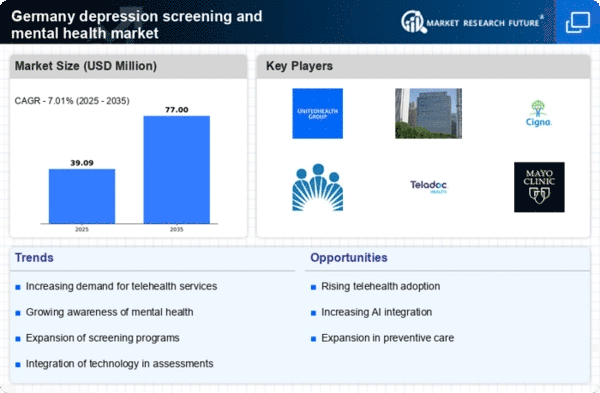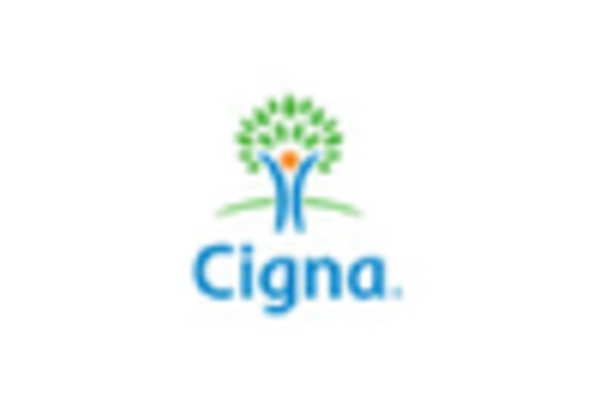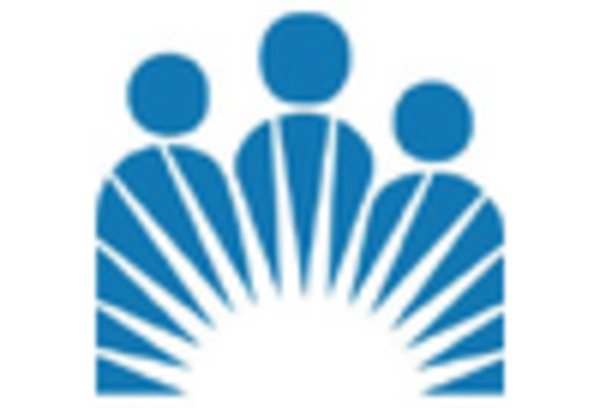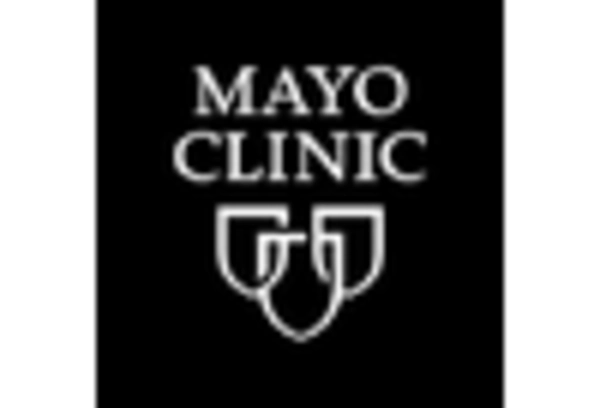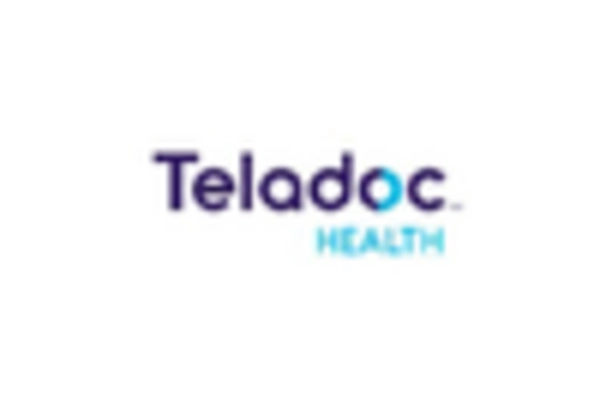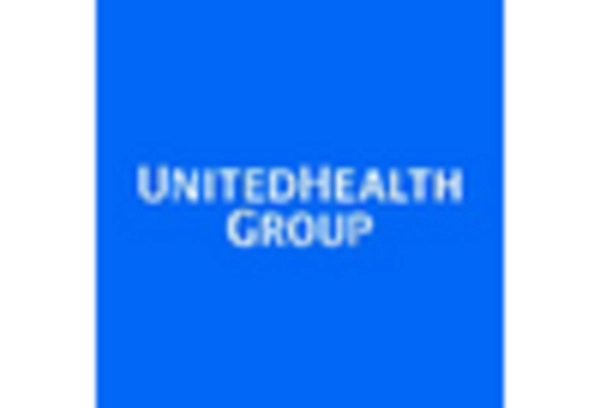Rising Prevalence of Depression
The increasing prevalence of depression in Germany is a critical driver for the depression screening-mental-health market. Recent studies indicate that approximately 5.3 million individuals in Germany experience depression, which translates to about 8.2% of the population. This growing number necessitates effective screening methods to identify and address mental health issues early. As awareness of mental health continues to rise, healthcare providers are more inclined to implement screening protocols. The demand for early detection tools is likely to increase, thereby propelling the market forward. Furthermore, the economic burden associated with untreated depression, estimated at €100 billion annually, underscores the need for proactive screening measures. This situation creates a favorable environment for the development and adoption of innovative screening solutions within the depression screening-mental-health market.
Government Initiatives and Funding
Government initiatives aimed at improving mental health services play a significant role in shaping the depression screening-mental-health market. In Germany, the government has allocated substantial funding to enhance mental health care, with an investment of over €1 billion in recent years. These initiatives focus on increasing access to mental health services, including screening programs. The introduction of national guidelines for depression screening has further encouraged healthcare providers to adopt standardized practices. As a result, the market is likely to witness an influx of resources dedicated to developing and implementing effective screening tools. Additionally, public health campaigns aimed at reducing stigma surrounding mental health issues are expected to foster a more supportive environment for individuals seeking help, thereby driving demand for screening services in the depression screening-mental-health market.
Advancements in Digital Health Solutions
The rapid advancements in digital health technologies are transforming the landscape of the depression screening-mental-health market. The integration of telehealth platforms and mobile applications has made mental health screening more accessible to the general population. In Germany, the use of digital tools for mental health assessment has surged, with a reported increase of 30% in teletherapy sessions over the past year. These technologies facilitate remote screening, allowing individuals to access mental health services from the comfort of their homes. Moreover, the ability to collect and analyze data through digital platforms enhances the accuracy and efficiency of screening processes. As digital health solutions continue to evolve, they are likely to play a pivotal role in expanding the reach and effectiveness of depression screening initiatives within the market.
Increased Focus on Preventive Healthcare
The growing emphasis on preventive healthcare is significantly influencing the depression screening-mental-health market. In Germany, healthcare policies are increasingly prioritizing early intervention strategies to mitigate the long-term effects of mental health disorders. This shift towards prevention is reflected in the rising number of health insurance providers covering routine mental health screenings. Approximately 70% of health insurers in Germany now offer benefits for preventive mental health services, which encourages individuals to seek screening. This proactive approach not only aids in early detection but also reduces the overall healthcare costs associated with untreated mental health conditions. Consequently, the focus on preventive healthcare is expected to drive the demand for screening services, thereby fostering growth in the depression screening-mental-health market.
Collaboration Between Healthcare Providers
Collaboration among various healthcare providers is emerging as a vital driver for the depression screening-mental-health market. In Germany, interdisciplinary approaches that involve general practitioners, psychologists, and psychiatrists are becoming more common. This collaborative model enhances the identification and management of depression, as it allows for comprehensive patient assessments. The integration of different specialties facilitates the development of standardized screening protocols, which can improve the accuracy of diagnoses. Furthermore, partnerships between public health organizations and private entities are likely to lead to innovative screening initiatives. As these collaborations continue to strengthen, they are expected to enhance the overall effectiveness of mental health services, thereby positively impacting the depression screening-mental-health market.


